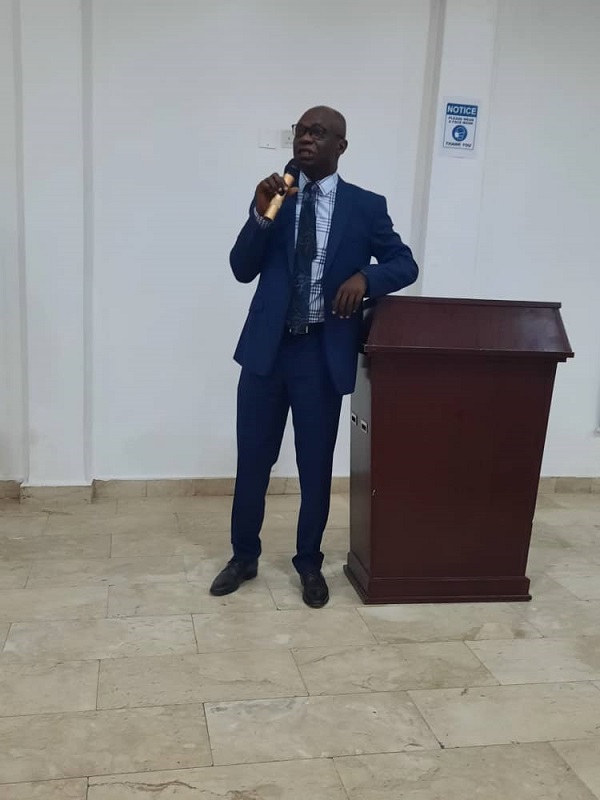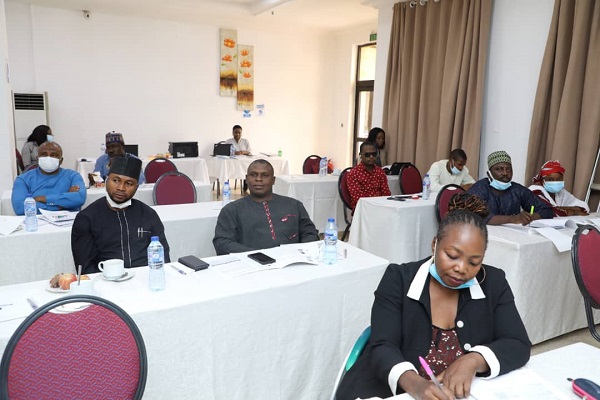
The executive secretary, National Commission for Persons with Disabilities (NCPWD), Mr. James Lalu, has said over 95 per cent of health facilities have been inaccessible to people with disabilities (PWDs) since the onset of the Coronavirus 2019 (COVID-19) pandemic.
Speaking to journalists during the COVID-19 learning dissemination event organised by Sightsavers in Abuja, Lalu said the COVID-19 pandemic has exposed a lot of inadequacies in the environment, especially for PWDs.
He pointed out that the COVID-19 has been sending PWDs to the health facilities a lot, which unfortunately are inaccessible for persons with disability.
“A lot of our people have lost their jobs and livelihood during this COVID-19, they have been exposed to the dangerous environment during this period. So, when you look around the era, it has exposed a lot of inadequacies in our environment as it relates to persons with disability.
“We believe disability is not about the impairment the person has. It is not about the inability to hear, walk, speak, see but the inability of making our environment disability-friendly. That is the major reason for disability. When you create barriers in your environment you are making the person with impairment unable to perform his daily tasks that is where the definition of disability comes in,” Lalu said.
He also highlighted the attitude of the health workers which is mostly unfriendly to persons with disabilities during the era, adding that attitude is one of the major distracting barriers PWDs continue to face, stating that the attitude of health workers is something that continues to send their women/men out of the clinical centres.

The executive secretary thanked Sightsavers Nigeria for coming up with the Disability Inclusive Development (DID) programme study which carried out accessibility indices on health facilities, while he assured they will do everything possible to implement these recommendations.
Earlier in his welcome address, the country director, Sightsavers Nigeria, Dr. Sunday Isiyaku, said the study carried out by the organisation led to the upgrade of two health facilities to be accessible to people with disabilities.
“So, working with the Foreign, Commonwealth and Development Office (FCDO), the UK government, Sightsavers undertook a piece of work to develop two specific centres in the FCT – Maitama and Garki General hospitals – mainly to see how accessible they are. We worked with the Federal Capital Development Authority (FCDA), the government agency responsible for those facilities to make sure those centres are accessible and persons with disabilities have access to those centres. After that, a report was written and shared with the community and organisations of persons with disability.
“The FCDO realised that this had a great potential to expand especially looking at the disability act in Nigeria which promotes ensuring all our facilities and buildings are accessible. So, we think it is timely and we have been working with the National Commission for Persons with Disability (NCPWD) and we know they are developing a minimum standard in terms of what accessibility should be in place, infrastructure.
“We think this is very timely to share the report with key stakeholders, organisations, PWDs, our partners we are working with like the BBC Media Action, FCDA and the NCPWDs. So, we can get inputs on what we did and how to take it forward.
“This may have started as something new but I think it is going to be very useful going into the future and setting up the foundation for the minimum standards for accessibility in buildings,” he added.
In his goodwill message, a human rights expert at the British High Commission in Nigeria, Grant Morris, said all those who care for Nigeria are concerned by the lack of inclusion, ongoing challenges and discrimination which affects people of all gender and ethnicities in all geographical locations. He said that is why events like these are so important, as people come together collectively to spotlight some of the difficult experiences that people are living through in Nigeria, to inspire collaborative action.
He commended Sightsavers and other collaborating organisations for their tireless efforts in delivering their DID programme which has particularly focused on inclusive education and inclusive health programme. Morris added that the FCDO is proud to play a part in enabling the vital work.


